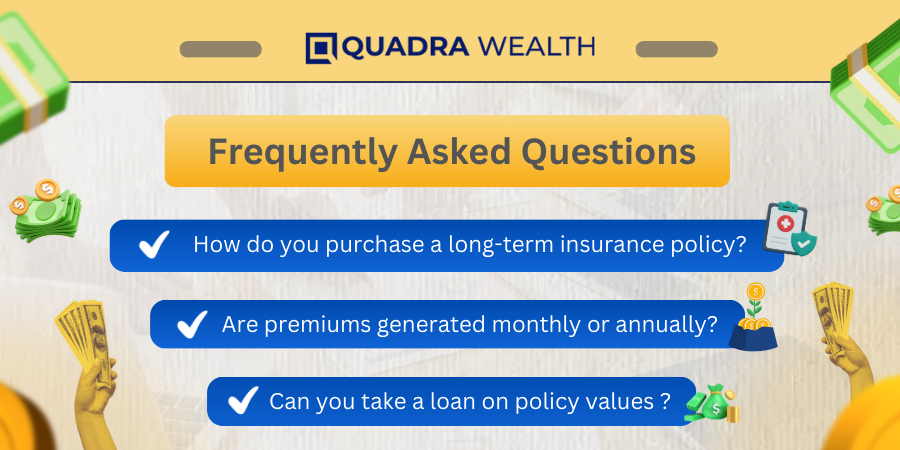Introduction
Insurance is a type of calamity-protecting product as against a regular form of investment. While premium subscriptions are shelled out periodically to insurance companies, the claims can be received from the insurance service provider only when you contemplate a calamity like an outbreak of fire, your home getting robbed, or in case of an impending health crisis.
For fire, it is a fire insurance policy. For health, it is a medical coverage policy; for burglary, it can be a theft insurance policy. Therefore, when you pay premium subscriptions every month or every quarter, you receive the claim amount only during the event of a calamity.
This gives rise to the question- Is insurance an asset or a liability? Well, let us find out more!
Insurance Working Mechanism Explained
Insurance is a policy that is taken in the name of the insurance subscriber who invests in the scheme. The policy deed is curated by the insurer who is the service provider.
An insurance policy can be taken to protect against your life. This can be a life insurance policy. A policy that is taken to protect yourself from health ailments can be a medical or a health insurance policy. Or, you can take a policy to protect your properties against fire when you take a fire protection policy.
When you contemplate different calamities in life, you must be prepared to face the losses that arise from the same. This protective layer is what is known as insurance. When you take up that particular insurance policy that you foresee in the future, you can pay policy premiums in lieu of the same.
In the event of an eventuality, say a health crisis or a fire accident arising on the property you stay in, you can submit your damage claims to the insurance service provider and you get damages covered as the amount gets credited into your bank account as such.
Types of Insurance Policies
These are the different types of insurance policies that you have in the market. Helping you on a run-down into the same:
1. Life Insurance Policy
A life insurance policy is a type of policy wherein you protect your life from eventualities or calamities that you may face in life. In the eventuality of your death or against the completion of the specified term, you and your family members can get the sum assurance coverage from the policy. You can choose a term life policy, a universal insurance policy, or a whole life insurance policy as per the requirements you have in mind.
2. Health Insurance Policy
A health insurance policy is a type of policy you may take to protect you and your family members against different types of illnesses that you might contemplate. You can avail of cashless hospitalization that helps you cover your hospital bills for impending treatments. Pre-hospitalization bills or post-operative procedures can also be covered when you opt for comprehensive medical insurance policies.
3. Fire Accident Policy
A fire accident policy is a type of policy wherein you protect your residential and commercial properties against fire outbreaks. Therefore, the damages that arise to the goods you have placed inside your godown or factory premises or your homes get covered through fire insurance coverage.
4. Theft Insurance Policy
A theft insurance policy is a type of policy wherein you contemplate a theft scenario or your house gets burgled, you can claim a theft insurance coverage and get the damages covered.
5. Home Insurance Policy
The home insurance policy covers repairs or refurbishments made to residential properties for homes or villas. Homeowners claim the insurance coverage amount to do home painting, replace ceiling walls, or look into plumbing sinks or borewells, to name a few.
Likewise, you have different types of insurance policies that can protect you against different types of calamities or eventualities you can think of. You can choose an insurance policy based on the requirements you have in mind.
Insurance as an Asset- Insights Explained
Let us understand how insurance can be perceived as a valuable asset component for insurance subscribers. Helping you through with a run-down of pointers on the same:
1. Protection Against Loss
Insurance is a type of component wherein it safeguards you against financial or health-related crises. When you apply for an insurance policy, you can protect your business, family, and yourself from calamities or future contingencies as you are covered against the same. Therefore, insurance adds a protective layer to save your rainy days ahead. And this way, you treat your insurance as an asset indeed.
2. Risk Management
You can utilize the insurance component as a way of mitigating your personal as well as business-related losses as you have your damages covered through the insurance policies that are taken up in lieu of the same. Therefore, taking up insurance can be considered an asset indeed.
3. Doubles Up as a Lucrative Source of Investment
Some of the insurance policies, say a term insurance policy or a whole-time life insurance accumulate interest earnings as the insurance service provider utilizes the premium subscription collection amount into stocks, equities, or govt-backed bonds. Therefore insurance subscribers earn dividend earnings or coupon payments from time to time. Therefore, you get protection and investment under the same insurance policy, giving you an asset value as such.
4. Tax Benefits
You get numerous tax benefits and waivers when you apply for insurance policies on the whole. Government authorities and insurance firms have a favorable tie-up with one another to save on taxes. The tax benefits are passed on to consumers amplifying the value of insurance policy as an asset.
5. Peace of Mind
Insurance subscribers get an overall sense of relief and peace of mind when their unforeseen calamities are covered with suitable insurance policies. This way, you get an overall sense of well-being and stay protected at all times. Therefore, insurance can be treated as a tangible as well as an intangible asset after all.
How do You Evaluate Insurance as a Liability?
1. Ongoing Cost Factor
Insurance subscribers might have to shell out premiums from time to time. The insurance premiums may have to be paid out every month, quarter, or even annually. Therefore, insurance consumers may have to undertake recurring costs concerning taking up an insurance policy. This can add to the overall cost factor making insurance seem a liability factor.
2. Limitation on Payouts
Not all claim requests are 100% approved by insurance providers. The coverage is limited to the exact specifics of insurance riders or benefits that the policy covers on the whole.
Say for instance, if the fire insurance policy covers 60% of damages from an impending fire outbreak in your factory outlet. However, your factory damages account for $40,000. You may get a claim coverage of just $25,000 wherein you also get some money deducted via taxes.
This way, you might not receive a value commensurate to the damages suffered by you as such. Here, you can treat insurance as a liability factor.
3. Confusing Terms and Conditions
The terms and conditions of policy documents can be confusing. Here, you can get well-informed cues when you discuss with an insurance advisor or a consultant how policy terms and conditions work in your favor. Therefore, when you do not understand terms and conditions as stated on policy documents, things can lead to frustration, making insurance seem like a liability.
Suggested Reads: Do you need insurance after retirement?
The Bottom Line
Relying too heavily on insurance might lead you to neglect other important investments or financial decisions on the whole. Therefore, insurers and subscribers must exercise a certain degree of care or caution while they deal with different types of insurance policies.
Frequently Asked Questions










